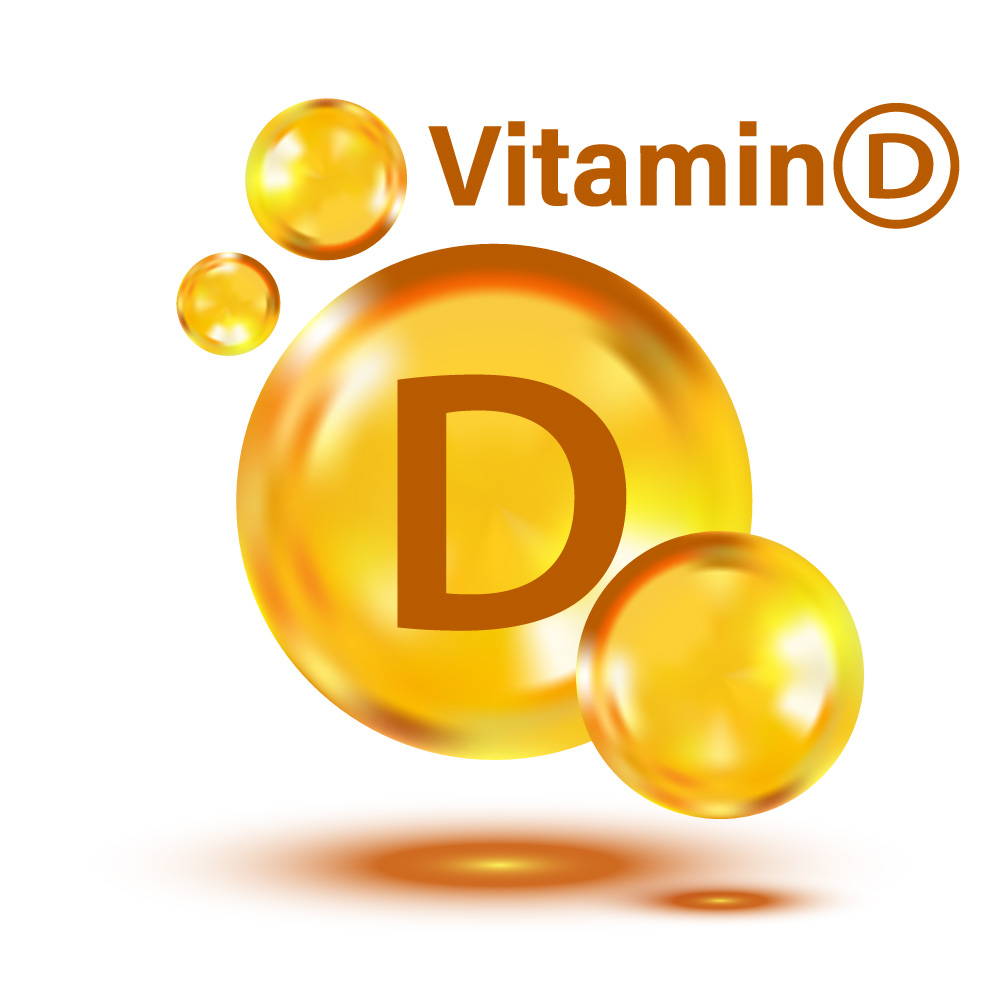SUPPLEMENT - VITAMIN
Explore our effective micro-nutrients and premium ingredients

What is vitamin D and what does it do?
How much vitamin D do I need?
LifeStage | RecommendedAmount |
Birth to 12 months | 10 mcg (400 IU) |
Children 1–13 years | 15 mcg (600 IU) |
Teens 14–18 years | 15 mcg (600 IU) |
Adults 19–70 years | 15 mcg (600 IU) |
Adults 71 years and older | 20 mcg (800 IU) |
Pregnant and breastfeeding teens andwomen | 15 mcg (600 IU) |
What happens if I don’t get enough vitamin D?
What are some effects of vitamin D on health?
Cancer
Vitamin D does not seem to reduce the risk of developing cancer of the breast, colon, rectum, or lung. It is not clear whether vitamin D affects the risk of prostate cancer or chance of surviving this cancer. Very high blood levels of vitamin D may even increase the risk of pancreatic cancer.
Clinical trials suggest that while vitamin D supplements (with or without calcium) may not affect your risk of getting cancer, they might slightly reduce your risk of dying from this disease. More research is needed to better understand the role that vitamin D plays in cancer prevention and cancer-related death.
Bone health and osteoporosis
Heart
disease
Vitamin D is important for a healthy heart and blood vessels and for normal blood pressure. Some studies show that vitamin D supplements might help reduce blood cholesterol levels and high blood pressure—two of the main risk factors for heart disease. Other studies show no benefits. If you are overweight or obese, taking vitamin D at doses above 20 mcg (800 IU) per day plus calcium might actually raise your blood pressure. Overall, clinical trials find that vitamin D supplements do not reduce the risk of developing heart disease or dying from it, even if you have low blood levels of the vitamin.
Depression
Vitamin D is needed for your brain to function properly. Some studies have found links between low blood levels of vitamin D and an increased risk of depression. However, clinical trials show that taking vitamin D supplements does not prevent or ease symptoms of depression.
Multiple
sclerosis
Type 2
diabetes
Vitamin D helps your body regulate blood sugar levels. However, clinical trials in people with and without diabetes show that supplemental vitamin D does not improve blood sugar levels, insulin resistance, or hemoglobin A1c levels (the average level of blood sugar over the past 3 months). Other studies show that vitamin D supplements don’t stop most people with prediabetes from developing diabetes.
Weight loss
Taking vitamin D supplements or eating foods that are rich in vitamin D does not help you lose weight.
Can vitamin D be harmful?
Ages | UpperLimit |
Birth to 6 months | 25 mcg (1,000 IU) |
Infants 7–12 months | 38 mcg (1,500 IU) |
Children 1–3 years | 63 mcg (2,500 IU) |
Children 4–8 years | 75 mcg (3,000 IU) |
Children 9–18 years | 100 mcg (4,000 IU) |
Adults 19 years and older | 100 mcg (4,000 IU) |
Pregnant and breastfeeding teens andwomen | 100 mcg (4,000 IU) |
Where can I find out more about vitamin D?
References
1. Institute of Medicine, Food and Nutrition Board. Dietary Reference Intakes for Calcium and Vitamin D. Washington, DC: National Academy Press, 2010.
2. Norman AW, Henry HH. Vitamin D. In: Erdman JW, Macdonald IA, Zeisel SH, eds. Present Knowledge in Nutrition, 10th ed. Washington DC: Wiley-Blackwell, 2012.
3. Jones G. Vitamin D. In: Ross AC, Caballero B, Cousins RJ, Tucker KL, Ziegler TR, eds. Modern Nutrition in Health and Disease, 11th ed. Philadelphia: Lippincott Williams & Wilkins, 2014.
4. Silva MC, Furlanetto TW. Intestinal absorption of vitamin D: A systematic review. Nutr Rev 2018;76:60-76. [PubMed abstract]
5. Health information data from U.S. National Institutes of Health
Better than others
Nine medical doctors used their research findings to develop Dr’s Grow UP in the biotech lab. The result is a product containing 22 ingredients mixed in the perfect proportions to maximize bone health and height development.
Why Bone Science?
Science-Backed Formulations
Carrying out extensive research and keeping up-to-date with the latest scientific findings is our key to develop superior formulations.
Best Growth Support for Kids & Teenagers
Our products contain essential ingredients for a healthy bone and height development of kids from 10 years and teenagers.
Fighting Aging Effects
We are dedicated to create formulations that delay and restrict the extent of adult’s bone density decrease.
Unmatched Product Quality
Only 100% natural ingredients that contain no soy, no gluten, no GMOs, no maltodextrin, and no artificial flavors, colors, or preservatives.
Product Safety
All of our products are manufactured in the US in an FDA and NSF cGMP registered facility.
